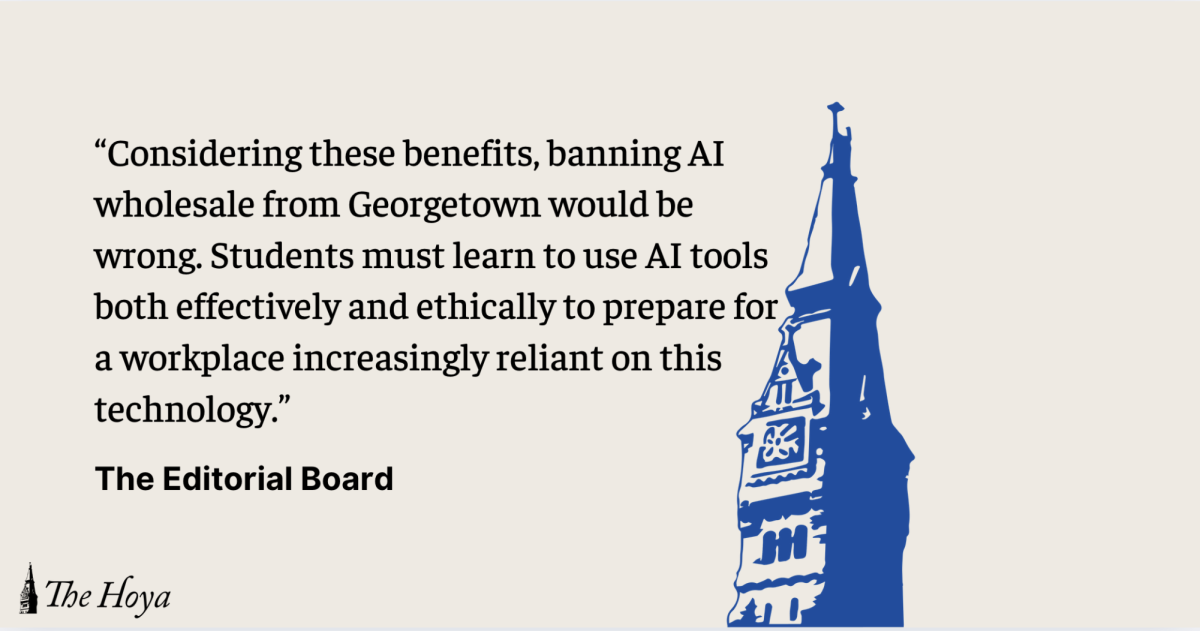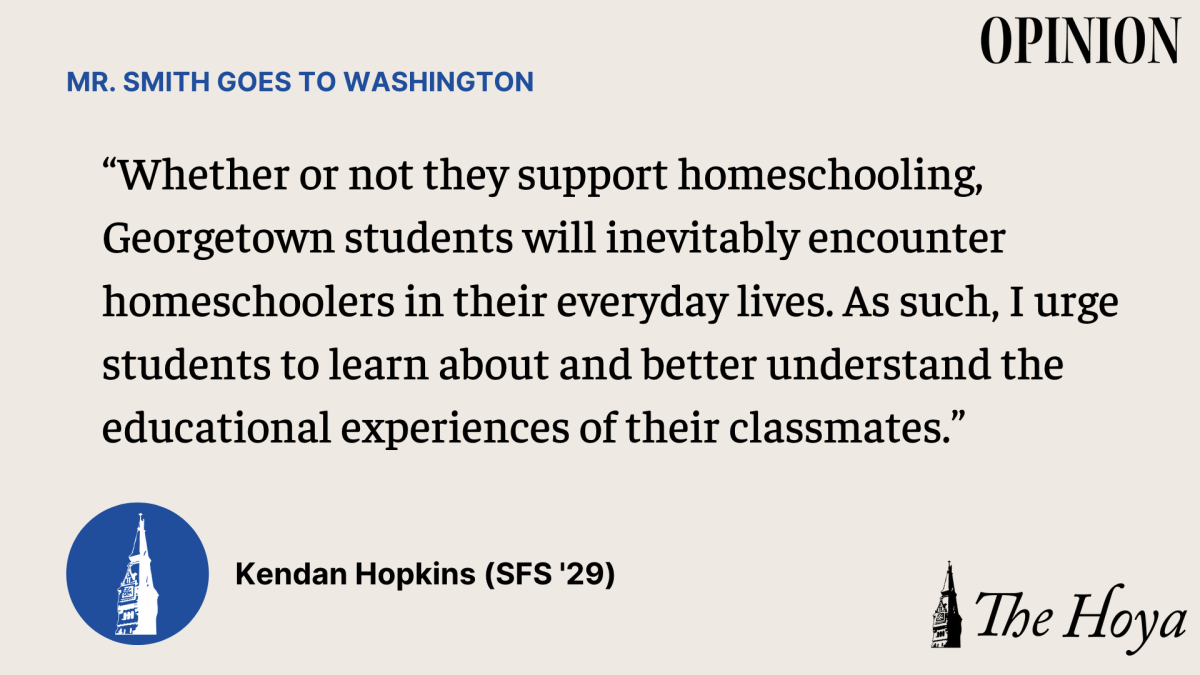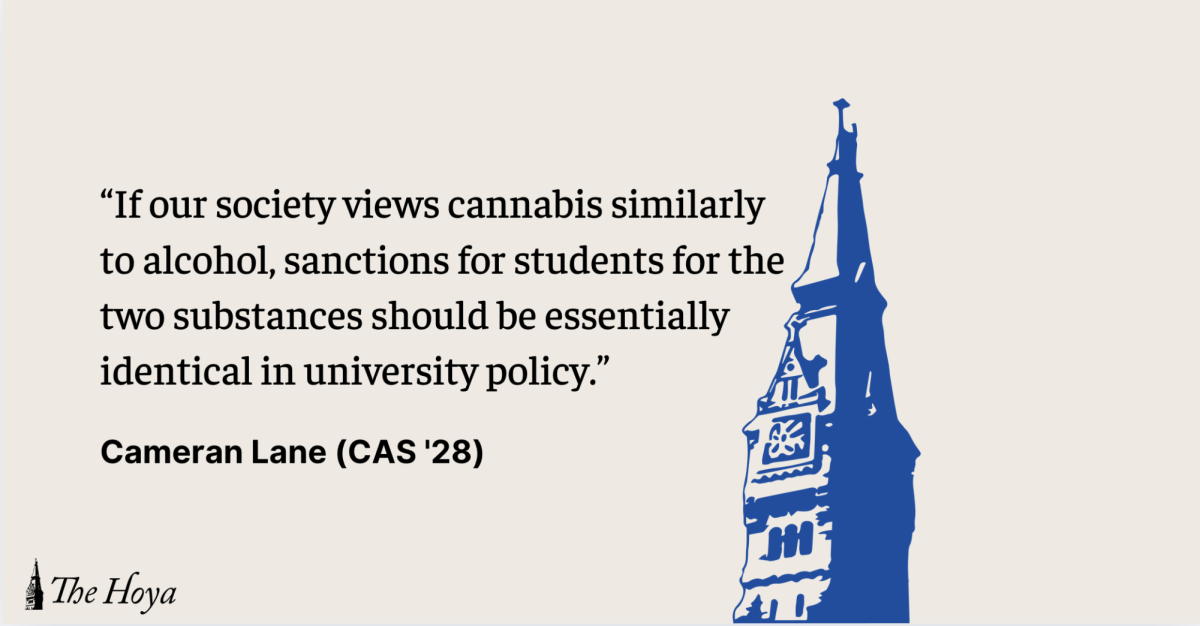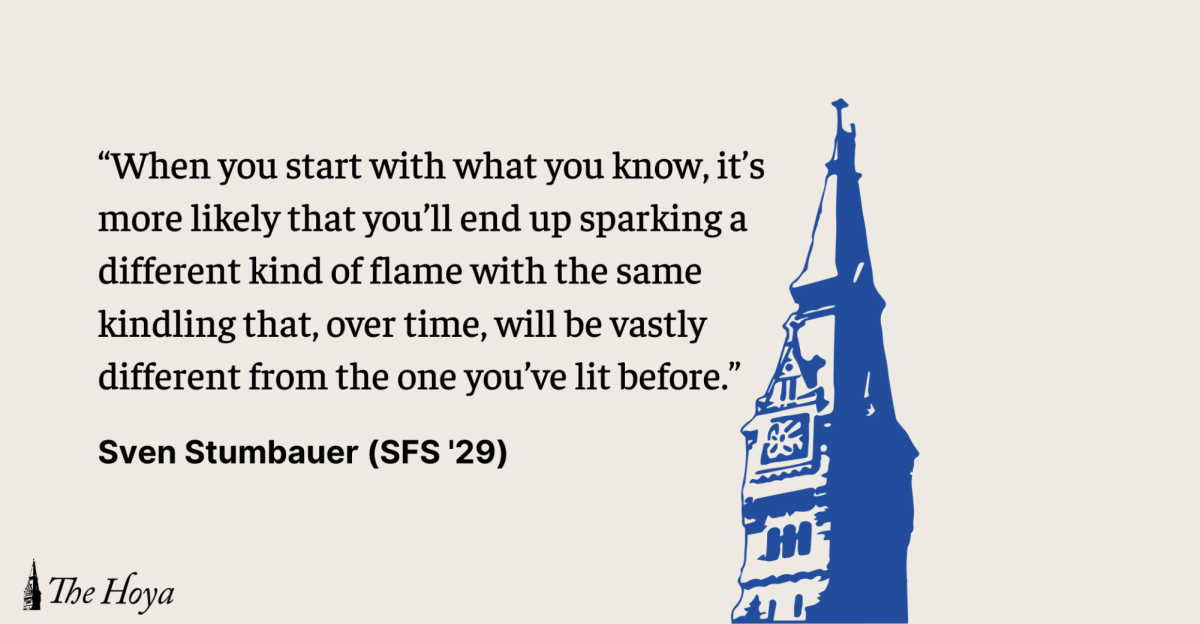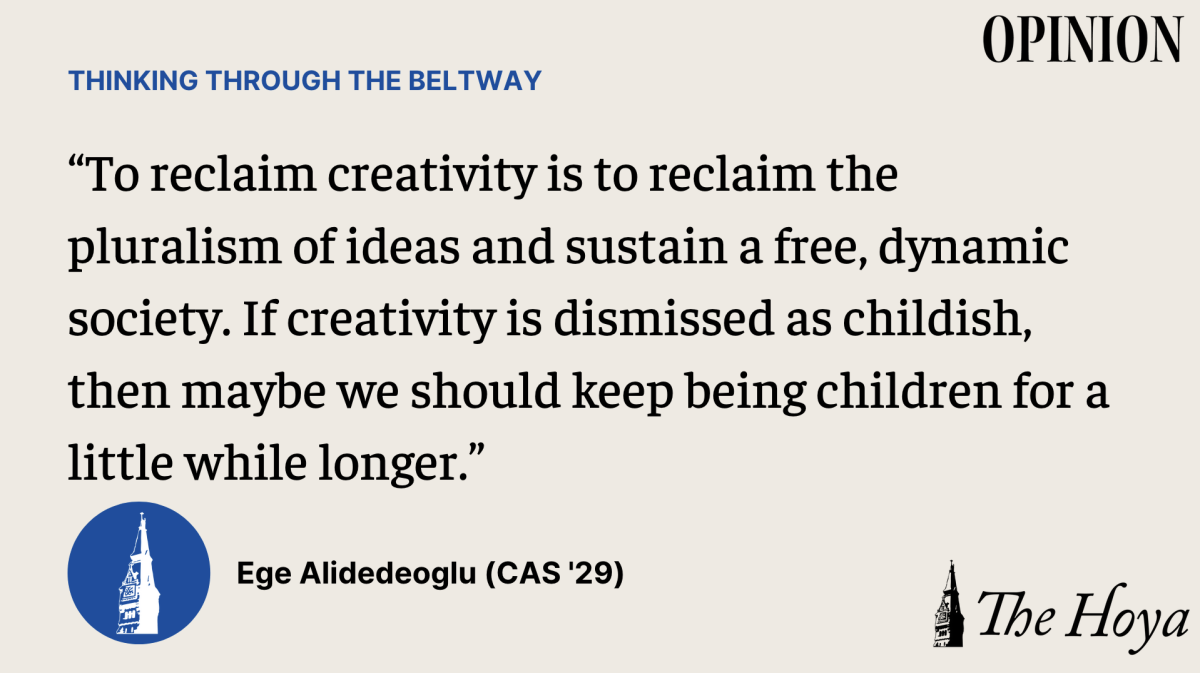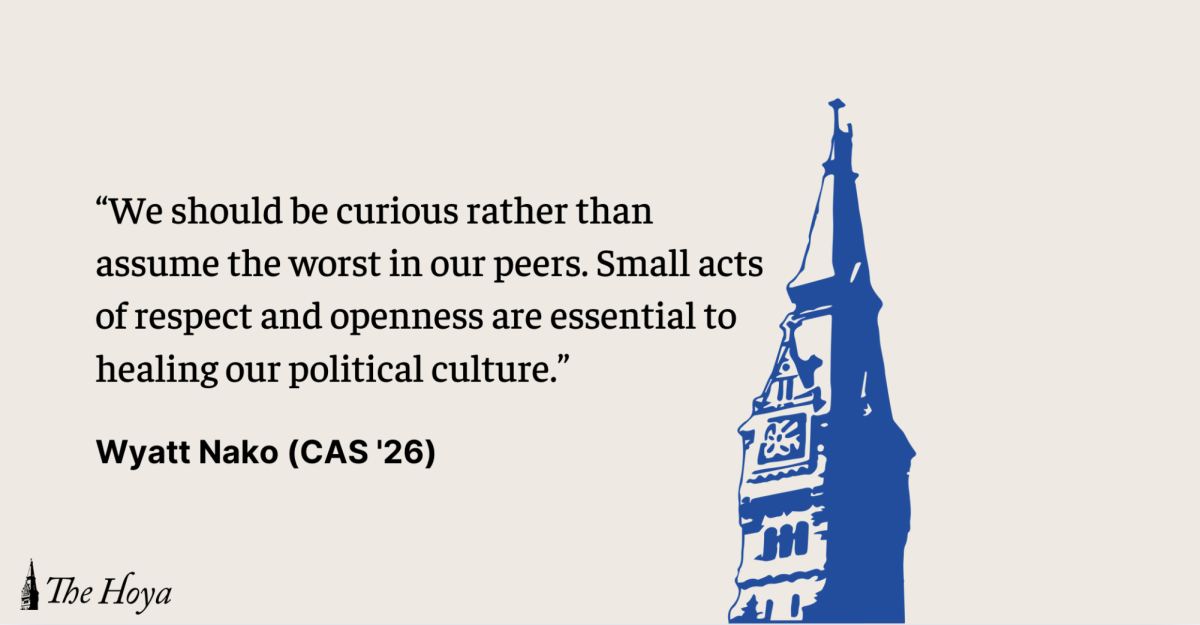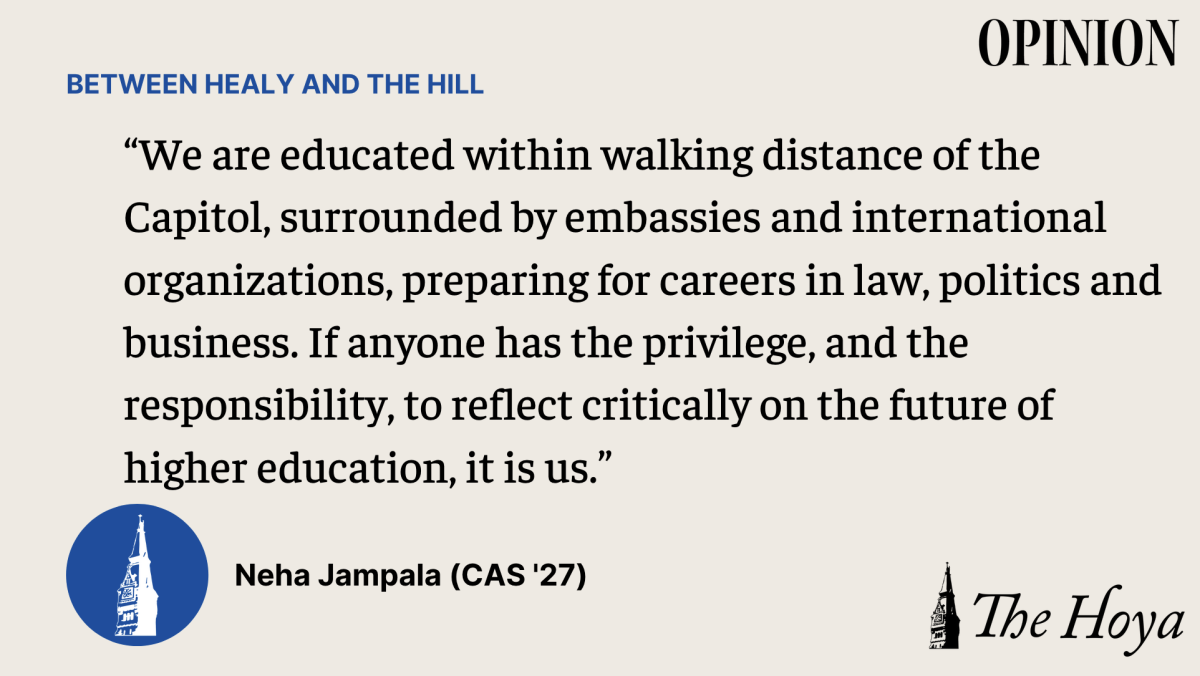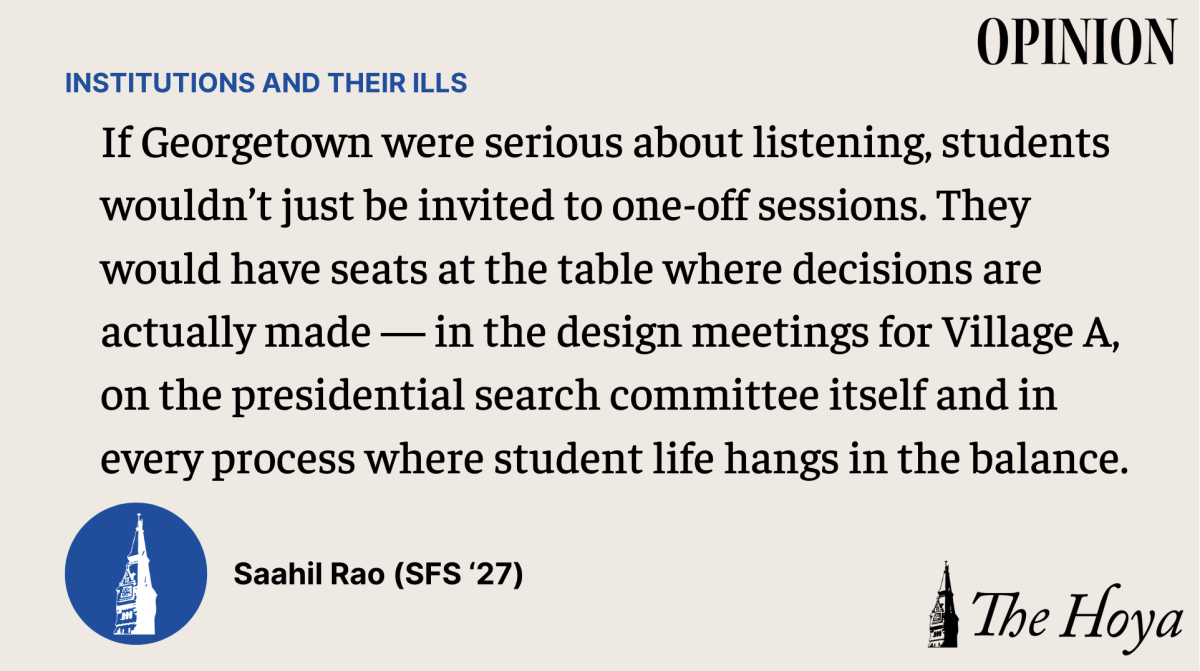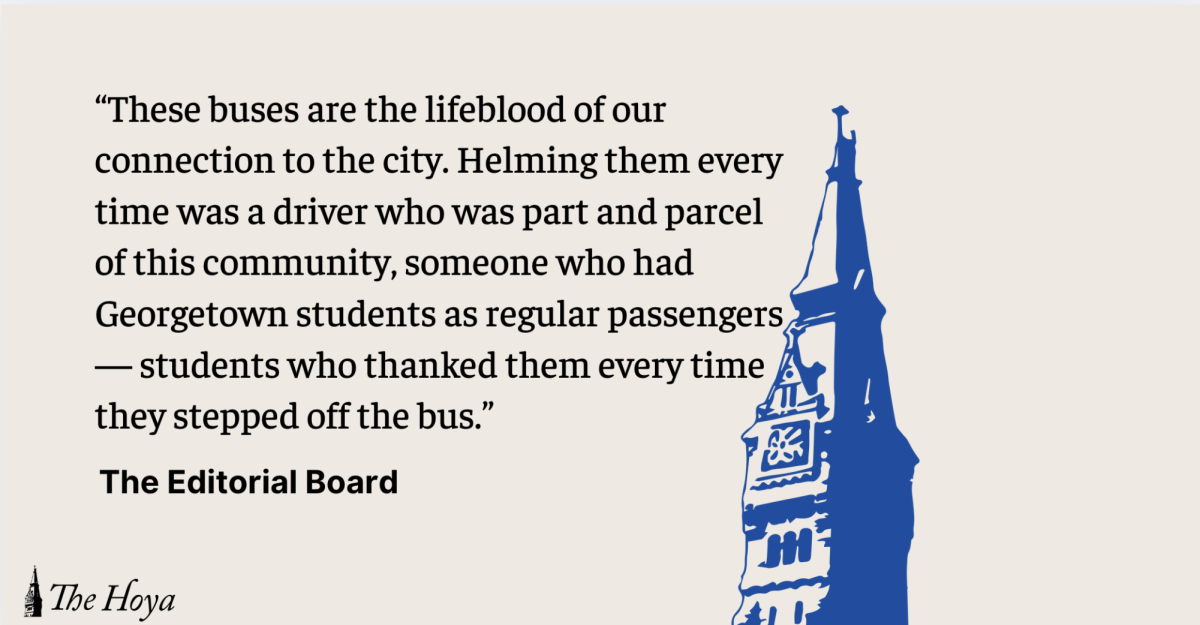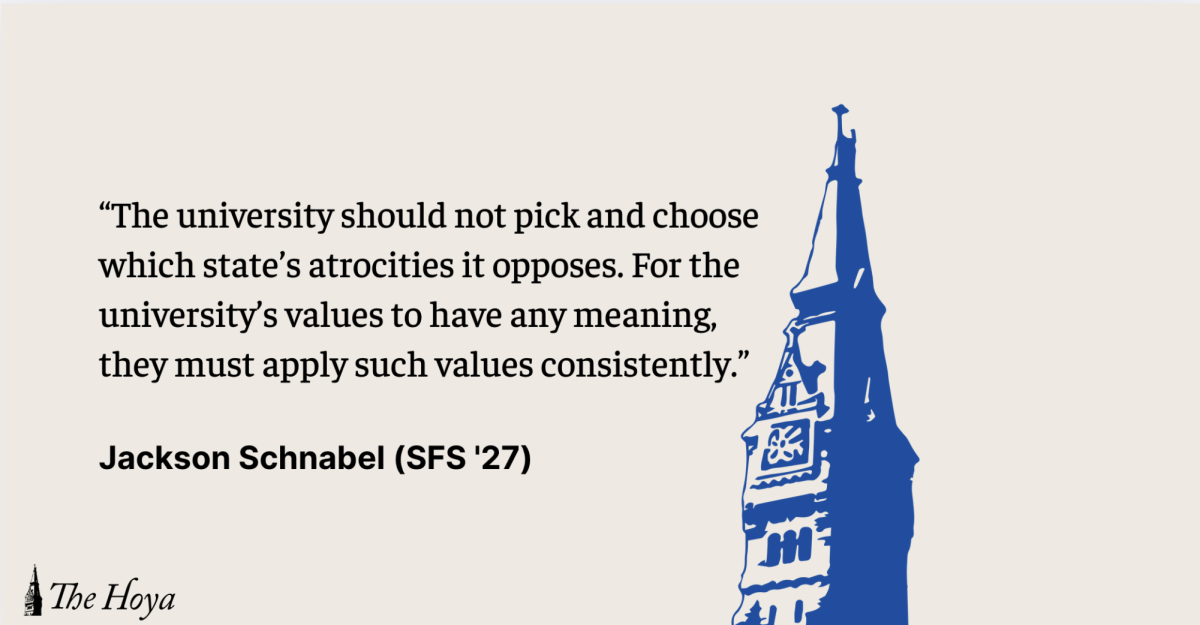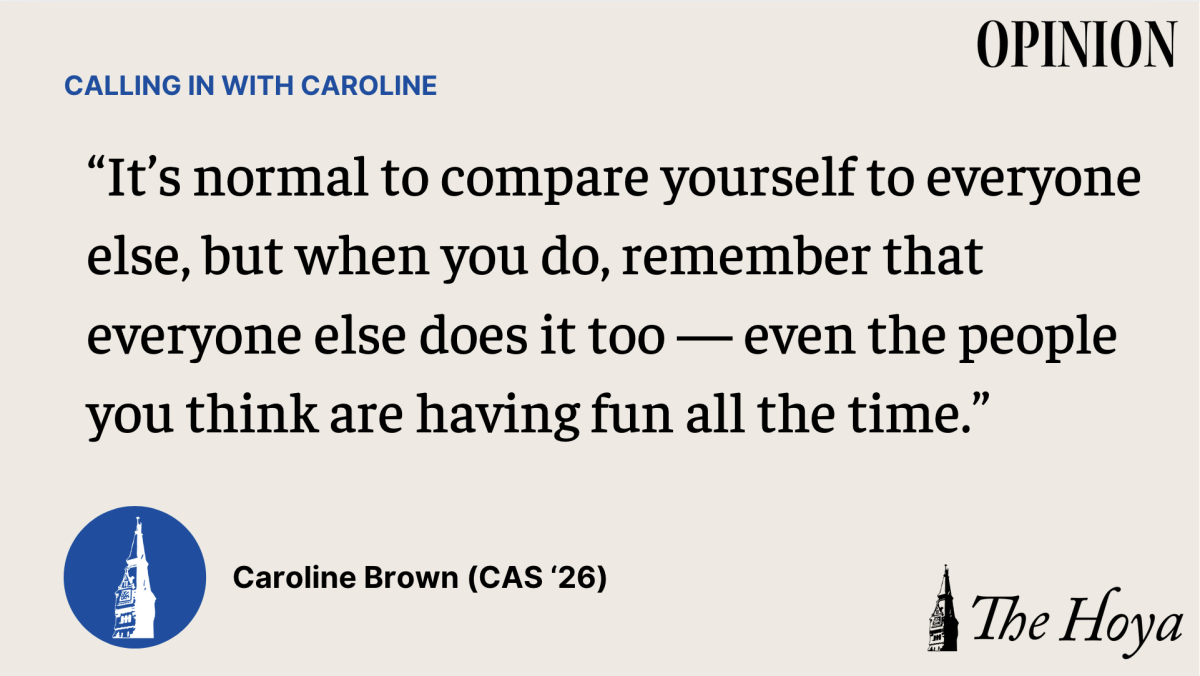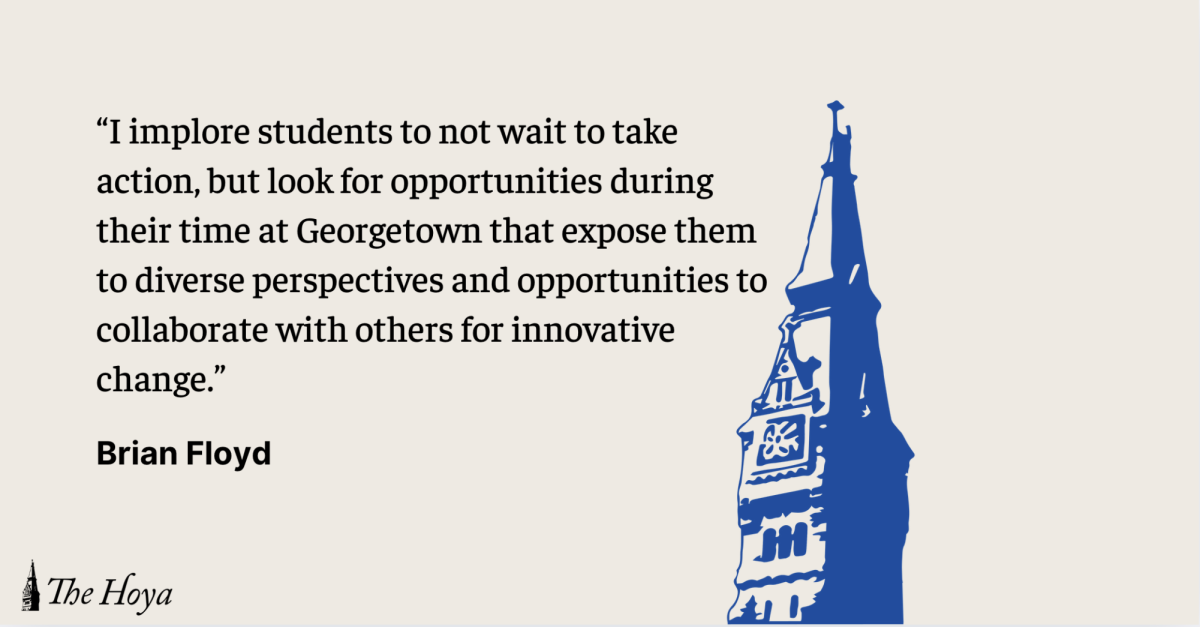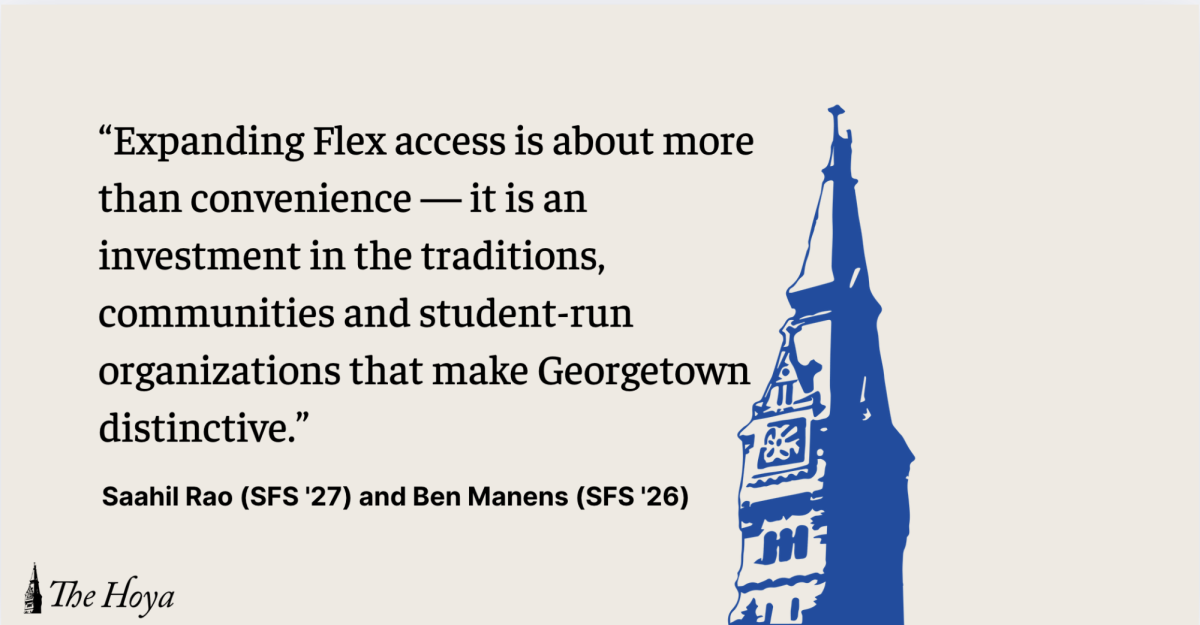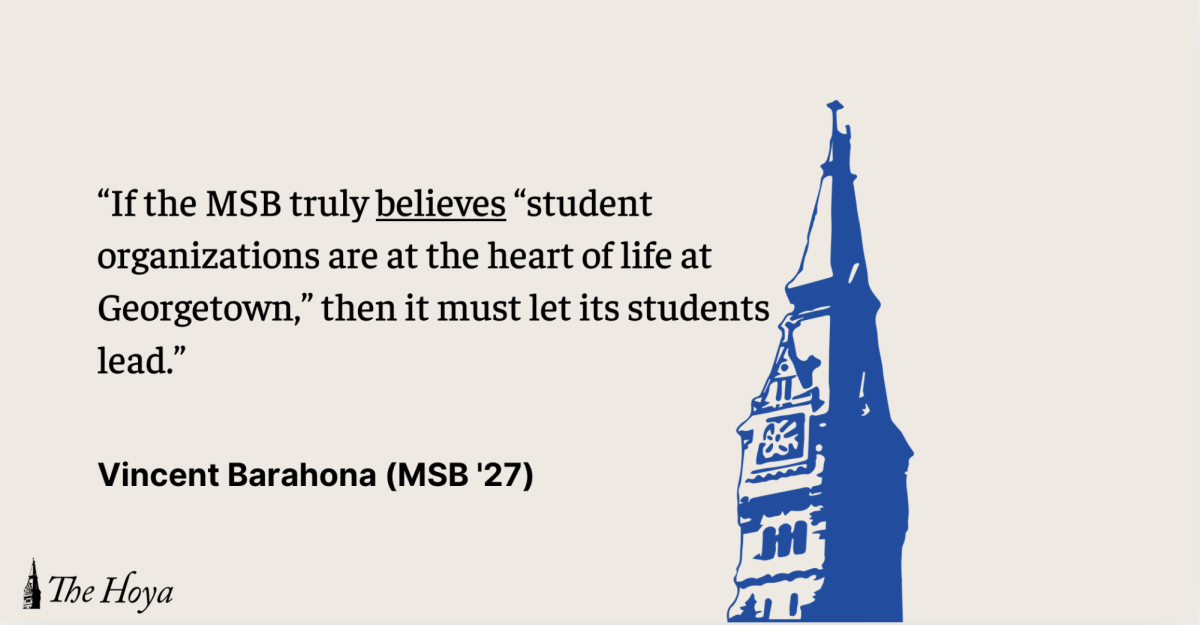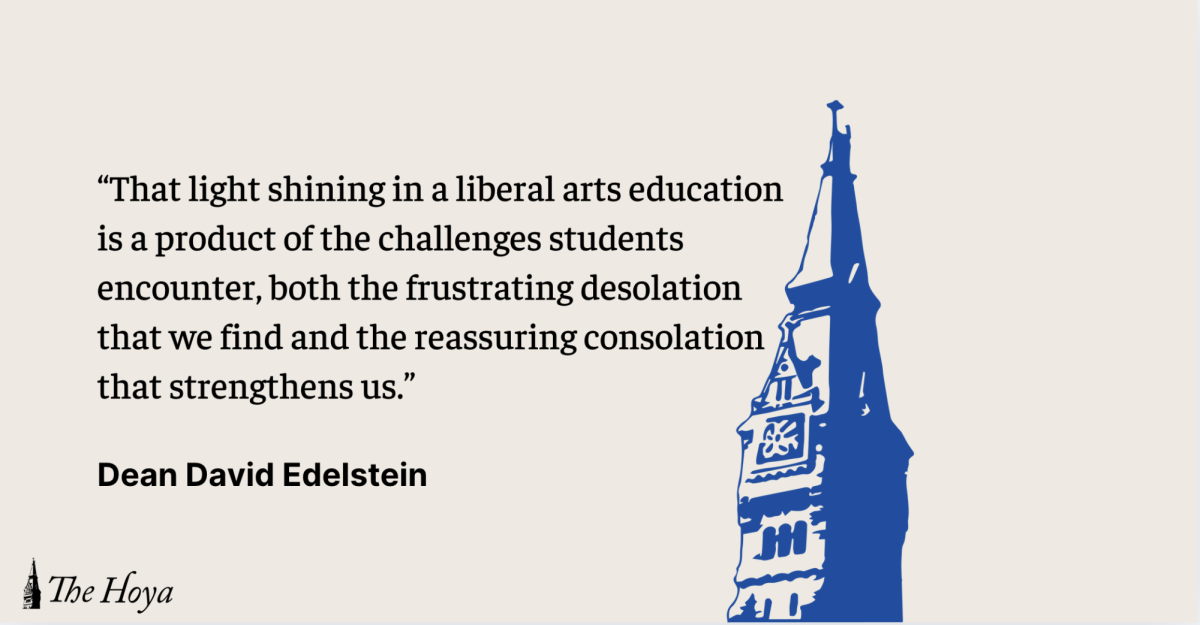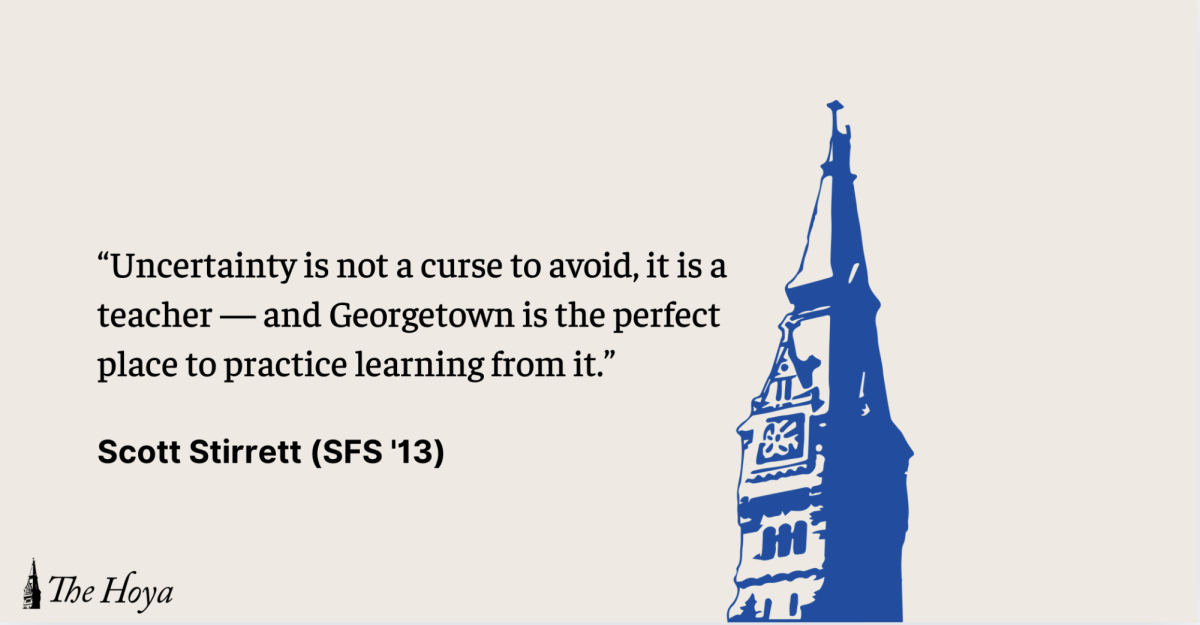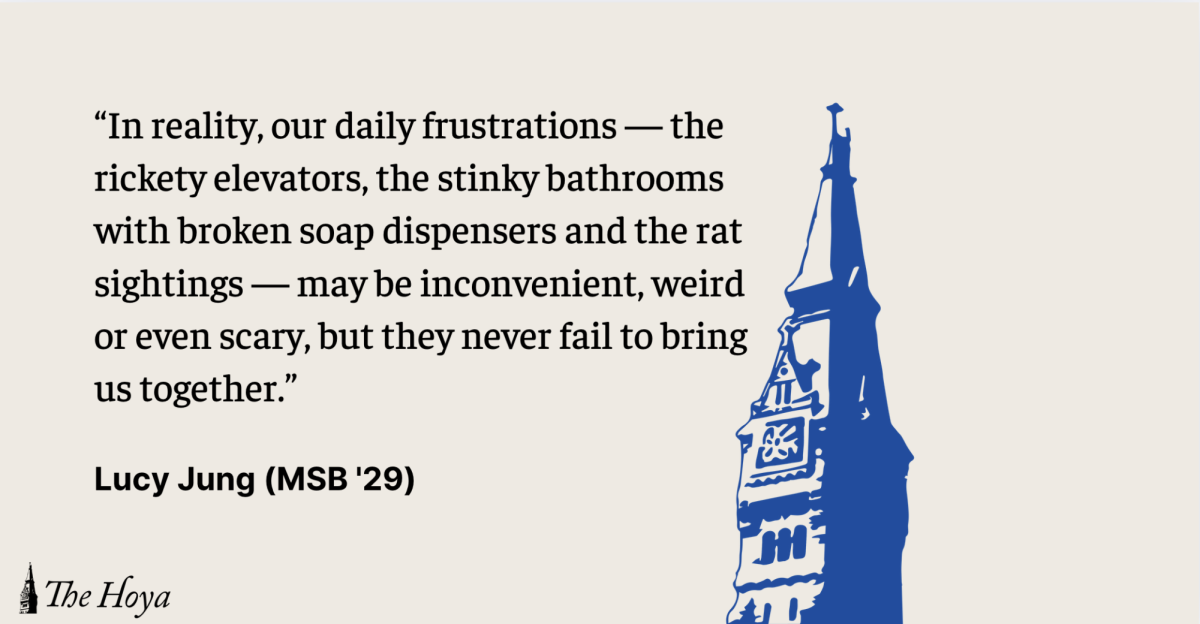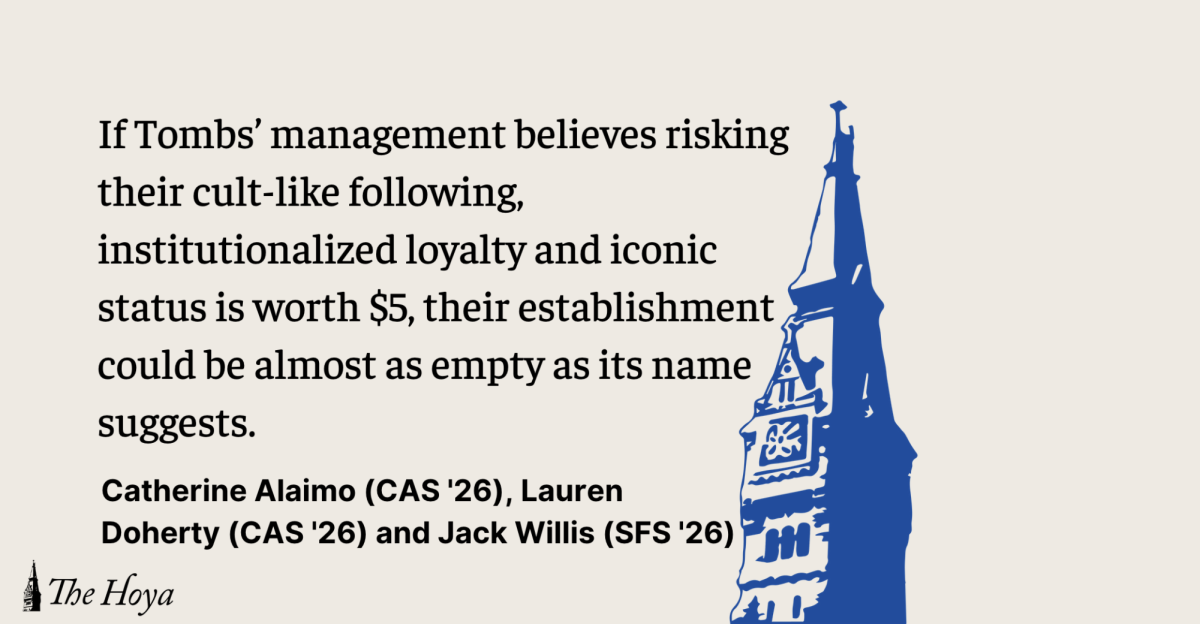Times are turbulent. As a campus, we’re going through not one, but two presidential transitions. Things feel more uncertain and chaotic than ever. In times like these, it can feel like the right answer is to hunker down, avoid starting any new initiatives and stand pat.
Wrong.
Now, more than ever before, it is time for Georgetown University students to build.
The call for a time to build first came five years ago from technology entrepreneur and venture capitalist Marc Andreessen. Amid the COVID-19 pandemic, Andreessen called for technologists and engineers to take chances and build new things ― to solve problems rather than simply identifying them.
In his last column of the Fall 2024 semester, Saahil Rao (SFS ’27) described the importance of using the Opinion section of Georgetown’s newspaper of record to “publish thoughtful solutions to the crises in our community as they arise.” I couldn’t agree more. But, as Andreesen stressed, we need to go beyond merely writing about solutions. We need to take actionable steps to enact these solutions. We need to build.
When I’ve spoken at GAAP weekends, I’ve reflected on “the Georgetown difference” — our competitive advantage vis-à-vis the Stanfords, Harvards and Columbias of the world. Part of what I see as the Georgetown difference is the entrepreneurial spirit that has suffused our undergraduate student population for decades. From The Corp and GIRA to Rangila and GU Pride, to new entrants like the Philonomosian and Project Maverick, Georgetown students have a long tradition of building institutions to solve problems and to take advantage of the special privileges we enjoy in this city and on this campus.
Now, amid the leadership transition we will have on campus, students have a unique opportunity to build for the future. I’d like to offer some advice on how to “build well” here, based on what I’ve seen succeed — and fail.
First, don’t wait for permission. The resources that come with formal recognition by the university and the access to benefits process are nice, but don’t believe that they are necessary to build a new institution. It may be better to start building without university resources and instead present your new institution for funding with a broader constituency behind it.
Second, build inclusively. The consulting club culture has become increasingly divisive on campus. Beyond that, research in complex systems demonstrates that broader, more socioeconomically, politically and cognitively diverse populations make better decisions over time by avoiding groupthink amid uncertainty.
Third, invest in the plumbing. Building something new can feel prestigious. However, the high profile parts of institution building are the least important. Far more important are the processes, procedures, rules and capabilities that allow an institution to mobilize for common purpose. Everything from setting up knowledge management capabilities to identifying communications rhythms matters profoundly.
Fourth, avoid the founder’s dilemma by sharing the leadership. Institutions that matter outlive their founders by focusing on human capital and ensuring that younger, less experienced followers are ready to lead. If you’re an upperclass student trying to build a new institution, your priority should be ensuring a strong population of first-years and sophomores ready to take over when you graduate.
Fifth, do the vision thing. There are so many challenges and opportunities on this campus. An institution that matters has a vision of the future and what its role is in achieving that. You, as students, need to have that vision, and you need to implement it. That’s the point of institution building — not a line on your resume. The vision you already have, which I want to see you put into action, is to transform this place for the better however you see it.
And finally, ask for help. Maybe this is my own foolishness in putting myself out there, but there is a wealth of expertise on this campus between faculty, staff, visiting fellows and affiliates, graduate students and even fellow undergraduates. Interim President Robert M. Groves himself blogged Oct. 16 about the need for “academic entrepreneurism” — use that. Put yourself out there. Make yourself vulnerable. This includes making sure that you’re also taking care of yourself, whether that’s through diet and exercise, counseling or therapy, coaching or accountability, spiritual practices — you name it.
Georgetown is great, but it isn’t perfect. Like the U.S. Constitution says, we aim for a “more perfect” place. Do your part. Build.
William Schlickenmaier (SFS ’01, GRD ’20) is an adjunct lecturer in the Georgetown department of government. The views expressed in this op-ed are his alone and do not reflect the views of any component of the U.S. government.



